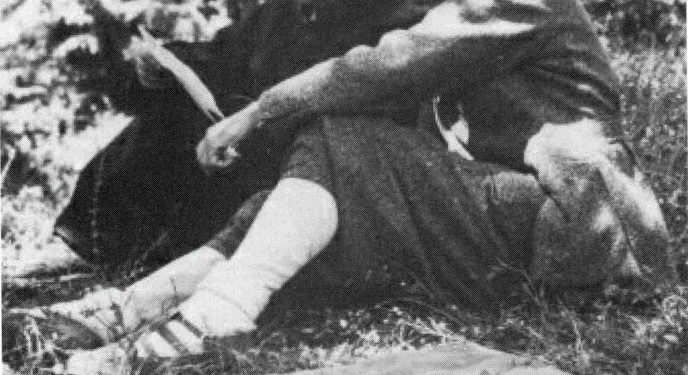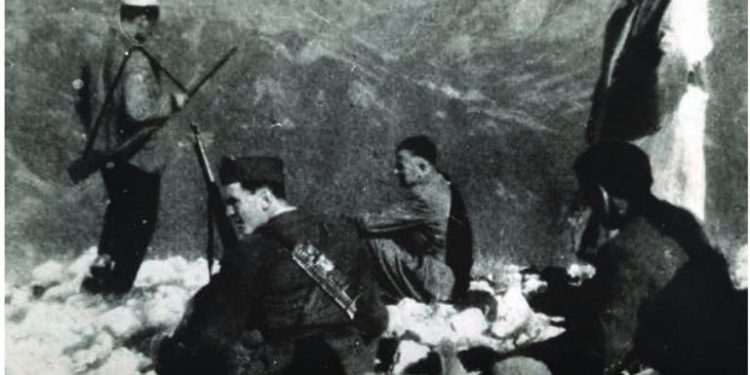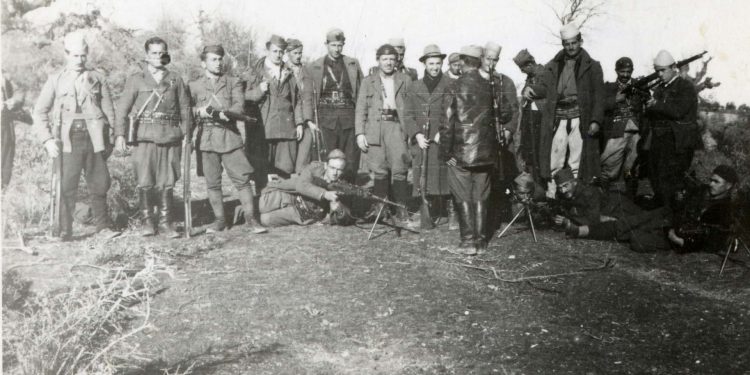By Ekrem Spahiu
From the historical point of view, the “Legality Movement” Party has its origins since the “Triumph of Legality”, on December 24, 1924, when the legitimacy of the December 1923 elections won by Ahmet Zogu was restored. Practically, Legality is a party with a 95-year history. Through the Kingdom of Albania, under the leadership of King Zog I, during the years 1928-1939 has given the Albanians the best governance in the history of the Albanian state. Legality has its indisputable contribution even in the fight against fascist and Nazi invaders, in which it has its martyrs and heroes. She has opposed in every way the coming of the communists to power and has stoically resisted for 45 years the most brutal dictatorship in communist Europe. Legality has contributed maximally to the democratic processes in Albania after 1990 and has provided the best model of representation in Parliament and local councils, as well as in central and local government, for commitment, skill, honesty, political stability and success.
In the context of World War II and the occupation of Albania by the Nazi-Fascist occupier, the legalists, in addition to directly contributing to the war, have tried by all means to unite all political-military factors in a common war against the occupiers. The representative of the Zogists, Abaz Kupi, at the Peza Conference on September 16, 1942, had declared before the delegates that: “I have joined you, working for the good of Albania and fighting every occupier, but in case parties are formed, I I am the protector of Legality before April 7, 39, I am with King Zog”.
Also, Abaz Kupi has a primary role for the convening, organization and conduct of the Mukje Conference, held on 1-2 August 1943, where the union for the salvation of Albania was established and announced. The communist leadership accepted the Mukje Agreement until the delegates of the Yugoslav Communist Party, Miladin Popovic and Dusan Mugosha, became acquainted with its contents and ordered Enver Hoxha to terminate it. For this purpose, a month later, on September 4, 1943, the Labinot Conference convened, in which not only was the Mukje Agreement formally annulled, but also an armed war was declared against the National Front, as well as any other current or political tendency. in other words, the preparation of the conditions for a clash between the parties began, until the civil war.
While the kings continued to fight fascism without fuss or advertisement, being successful, the communists not only exploited the success and good name created by the Zogist warfare, but secretly exercised a systematic propaganda against them. Concerned about this behavior of the communists, the Zogists, through Abaz Kupi, issued on November 19, 1943, a special tract addressed to the National Liberation Council, in which they insisted on maintaining a clear position on the further course of the war against the occupier. from which they received no reply.
In these circumstances, it seemed clear that the communist leadership had set another priority, comprehensive preparation for tomorrow’s government. Under these conditions, the royal forces, seeing that the efforts to unite all the political-military factors in the war against the occupier failed, to confirm their political legitimacy and to prevent the Communist Party from realizing its goal of eliminating the nationalist forces called on November 20, 1943 in Herraj of Tirana, a National Assembly for the creation of a political movement.
The meeting was attended by delegates from various districts of internationally recognized Albania, as well as from ethnic Albanian territories across political borders, including delegates from Zogist gangs. Among the most mentioned were: Abaz Kupi, the commander of the resistance in Durrës on April 7, 1939 and the main protagonist of the Peza and Mukje conferences; patriot Ndoc Çoba, participant in the Lushnja Congress and the Peza Conference; father Lekë Luli, diplomat Rauf Fico, teachers Gaqo Goga and Osman Myderrizi, lawyer Selim Damani, Xhemal Naipi, Mulë Delia, senior officer Joho Caci, Hysen Meça, Xhemal Herri, Mark Mir Gjiri etc.
The platform adopted at the Constituent Assembly was very clear: strengthening military organization and uncompromising war against the occupier; the return to power of King Zog, as only he enjoyed this legitimate right; the creation of a free, ethnic and democratic Albania; establishing the rule of law; the provision by law of fundamental human rights and freedoms; social reforms to improve the lives of the people; etc.
The next day, on November 21, 1943, the Zogists announced the formation of their party, the National Organization “Legality Movement” (OKLL). Ndoc Çoba was elected chairman of OKLL, while Major Abaz Kupi was elected Commander-in-Chief of the Legality Forces. The following were constituted: the Central Committee, the General Secretariat, the General Staff, the Propaganda Service, the Youth of Legality, the Press, the Economics and Finance Section, and the Sanitary Section (the latter with the attributes of wartime medicine).
The legalist combat forces at that time consisted of 5,000 to 10,000 fighters, while at their disposal were registered about 25,000 people. Moreover, these forces affirmed themselves in successful battles against the occupier, where the defensive resistance of the battalion commanded by A. Kupi in Durrës on April 7, 1939, the battles of Mat, Lake German and Zall of German, Qafë Shtama, stands out. Gurrës, Damit, Suçit, Krujë, Vorze – Shkalla Tujanit, Preza, etc.
OKLL was located in Tirana, Shkodra, Dibra, Mat, Durres, Kavaja, Shijak, Kosovo, Vlora, Berat, Saranda, Korca, etc. By the end of the war, its propaganda service had published 21 issues of the newspaper “Atdheu” with a circulation of 210,000 copies. 250,000 tracts were printed and distributed. In 6 months, 24 speeches were held.
The leaders of OKLL, in support of the founding platform, maintained constant communication by informing in detail King Zog on the situation in Albania, thus concretizing the maintenance on the ground of the political continuity of the royal institution. Meanwhile, they internationalized their combat activity through letters to US President Franklin Delano Roosevelt and British Prime Minister Winston Churchill through which they gave a realistic view of military and political developments in Albania.
It is a historical and very significant fact that, near the forces of Abaz Kup, was attached the British mission led by high-ranking diplomats and military men like Bill Maclean, David Smiley and Julian Amery. It should be noted that Great Britain and the United States cooperated with all resistance formations regardless of political beliefs, but severely condemned the organizations, which, under the guise of the struggle for freedom, aimed to prepare political changes in the country and acted against principles of the Atlantic Charter. The truth is that the national liberation movements in the Balkans began their activity with a nationalist program, which sought to liberate the country from the occupiers and then the peoples themselves to choose their democratic regimes, according to the principles of the Atlantic Charter. But it soon became apparent that these movements were inspired by Soviet policy and tried hard to prepare the ground for the seizure of power and the establishment of pro-Moscow communist governments. With this inspiration, they practically became more and more engaged in the fight against their rival nationalist organizations.
Meanwhile, since nationally inspired organizations always sought a national agreement to fight the occupier, the communist leadership feared this very agreement. The clearly national program of Legality and the prominent personalities who led it, caused panic in the National Liberation Movement led by the Communist Party, which considered the future as power and not as national agreement. Therefore, she started both underground and open war for the annihilation of Legality. To this end, the communist leadership convened the Përmet Congress on May 24, 1944, where its main decision was, “… to ban King Zog from returning to Albania and not to recognize any government that could be formed inside or outside the country.”
However, this was an absurd, partisan, one-sided decision, and consequently invalid both from the legal point of view and from the political and historical point of view. From the point of view of public and constitutional law, it is an undeniable fact that King Zog had governed the country legally, with a vote of the representative body of the Albanian people (the Constitutional Assembly). This legitimacy was gained not only because of his outstanding contributions, accepted and supported at the national level, but above all through legal means, in accordance with constitutional law, in a democratic, sovereign and free. Moreover, King Zog never abdicated from the royal throne, but because of developments that did not depend on his will, he had declared in Parliament that; “… I have not left a tool unused for the security of Albania” and, by decision of the Constitutional Assembly, on April 9, 1939 he left the country to avoid his unconditional surrender.
Therefore, the kings, in addition to the resistance in the days of April 1939, the efforts to unite all factors in the war against the occupier and their direct engagement on the war front, at the same time made the national and international public aware of the return of the legal regime. previous. At this point it is worth mentioning the fact that the realization of the so-called “personal union” with the crown of the Italian royal family, which formally placed Albania under the regime of the Italian royal family, is widely considered a fictitious decision, unfounded public international law. In the conditions when even from the communist historiography, this change of the form of government by the Italians has been considered as unfounded, consequently it is accepted the fact that from the legal point of view, in Albania the same form of government continued as before the fascist occupation. Having said that, King Zog could not be bypassed in any case, by any political decision-making, and he could no longer be prevented from returning to the country.
In these conditions, based on the arguments as above, Legality, continued to rely on the pillars of resistance against the occupier and the demand for national agreements, an agreement that, if reached as required by this political force, Albania would have had other flows oriented to the West to which it belonged. Seeing that these two pillars were not being reflected by other political forces, the top leaders of Legality predicted the country slipping into civil strife and, therefore, reshaped other ways of resisting, inside or outside the country.
Former MP & chairman of PLL













